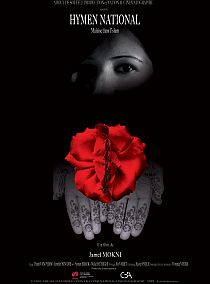


Doc à Tunis

Emanuela Macchniz, student at Zelig School for Documentary, Television and New Media, placed in Bolzano Italy sent this report to filmkommentaren.dk:
Last April (25 – 30) the Association Ness El Fen organized for the seventh year the new documentary film festival “Doc à Tunis”. The festival offers every year the opportunity to discover the Tunisian documentary films, showing the life and the current problems of the country. The president of the association, Syhem Belkhodja, opened the screening with “Militantes …” directed by the Tunisian director Sonia Chamkhi, who brings us into a post-revolutionary Tunisia in full democratic transition, where Tunisian women are candidates for the Assembly Constituency facing the political arena for the first time.” The screening was attended by the women protagonists who expressed their reflections about their electoral defeat. It was a very emotional moment.
After the opening day many other Tunisian films were in the list: “Himen National” (photo) by Jamel Mokni which treats the delicate subject of hymen reconstruction surgery, a practice increasingly common in Tunisia. Another powerful film was showed “Separation” directed by Felthi Saidi. Her story is about a Tunisian father of a family of four children. He sailed from Libya towards Lampedusa, risking his life, but convinced that Europe has the means to realize his dreams. This film is a double vision of two realities, one of the immigrant in France, and one of the family in Tunisia.
There were many exciting moments during the festival. One was when the rapper Mohamed Amine Bouhrizi commonly called “Madou”, came into the theatre to attend the screening of a short film about himself, “Golden Man” made by Hsan Abdelghani, showing the district where he was born “la Kabbariyya”, a place of both pride and with an intimate environment, but also the cause of his rebellion and his desire to leave the country .
The festival presented also international films: 6 from Lebanon including “Sector Zero” directed by Nadim Mishlawi present after the screening, “5 Broken Cameras” by Emrad Burnat e Guy Davidi from Palestine and Israel, “Letters from Iran” by Manoun Loizeau, Iran, “Indignados” by Tony Gatlif, “Good bye Moubarak!” by Katia Jarjoura, “Tous brulés” by Leila Chaibi, “Le Thé ou l’élèctricité” by Jérome Le Maire, “Arabe et fier de l’etre” by Lila Salimi and many other. “Vivan las antipodas” by Victor Kossakovski ended the festival. There were free admission to the screenings, and the theaters were full every day.
With me I carry the memory of a theater full of women and men, who participated with such interest, taking with them also their children.
Emanuela Macchniz, student of documentary at Zelig, Bolzano.